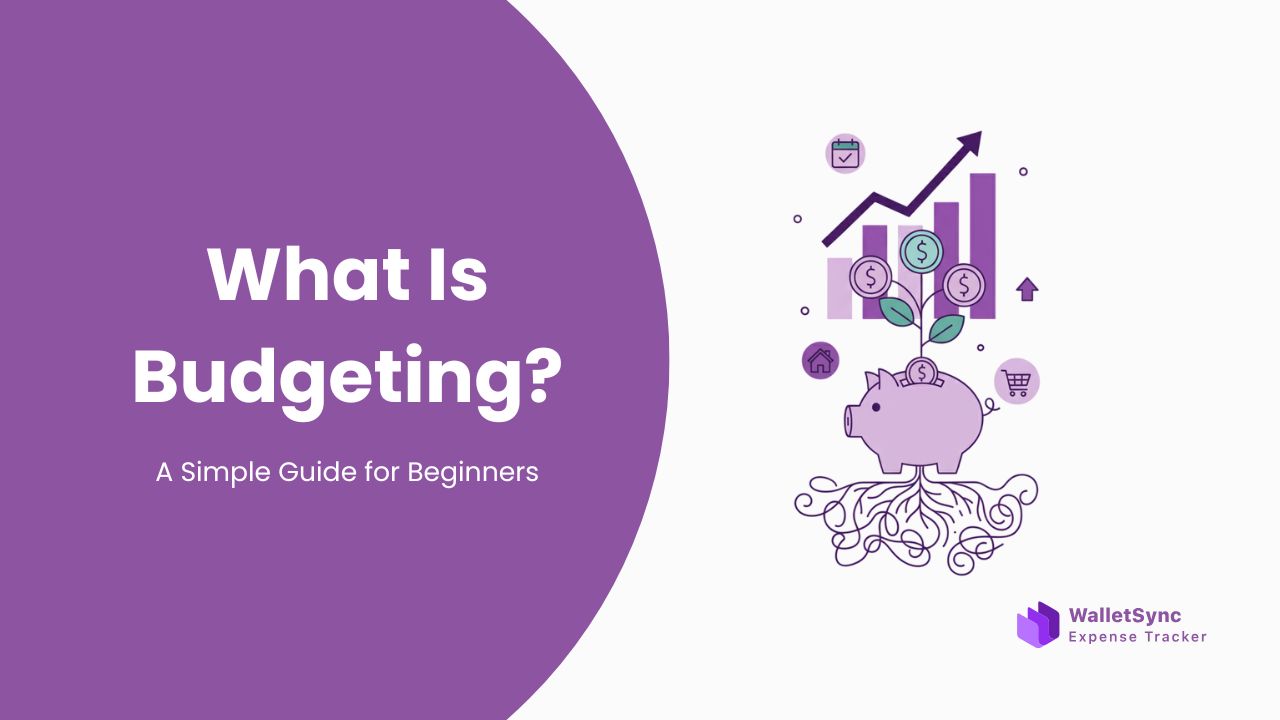The feeling is familiar to most of us: you get paid, and your bank account looks healthy. You think, “Finally, I can catch up.” A few weeks go by, and you’re back at square one, wondering where all the money went. It’s a frustrating, often stressful cycle that many people feel trapped in.
This isn’t a problem of low income, though that can be a factor. It’s often a problem of money management, or more specifically, the lack of a plan. That’s where budgeting comes in.
Many people think a budget means cutting out all the fun, living with constant limits, and never being able to enjoy life. But that’s not true at all. A budget isn’t about saying “no,” it’s about helping you say “yes” to the things that really matter. It gives you control, clarity, and confidence, so you can make choices that align with your goals and dreams.
Think of a budget as your personal financial GPS. It shows you exactly where your money is going, helping you navigate away from financial dead ends and toward your destination, whether that’s paying off debt, saving for a down payment, or finally taking that dream vacation.
So, What Is Budgeting?
At its simplest, budgeting is the process of creating a proactive spending plan for your money. It’s a fundamental pillar of personal finance that enables you to consciously decide how to allocate your income to cover expenses, build savings, and pay down debt.
Think of it this way: Your money has a job to do. Without a budget, your money is just wandering around aimlessly, getting lost in the day-to-day chaos of bills, coffee runs, and online shopping. A budget is the manager that gives every dollar a specific task. It’s not about making you miserable; it’s about making sure your money is working for you, not against you.
A Budget Isn’t About Restriction, It’s About Empowerment
This is the core concept that changes everything. The traditional view of a budget focuses on what you can’t do. My view, and the view of every successful financial planner, is that a budget is about what you can do.
- A budget doesn’t say, “You can’t buy that new pair of shoes.” It says, “You’ve set aside money for savings, and now you know exactly how much you can spend on shoes without derailing your financial goals.”
- A budget doesn’t say, “You have to live on a diet of ramen.” It says, “You’ve accounted for your essential expenses, and now you have a clear picture of how much you can comfortably spend on dining out.”
A budget provides clarity and confidence. It shifts you from a reactive consumer to a proactive planner.
The Core Purpose of Budgeting
Beyond the simple definition, the true purpose of a budget is to align your spending with your values and your goals.
Let’s break down the two main functions:
1. It Provides Awareness
The first and most immediate benefit of a budget is awareness. Most people have no idea where their money is actually going. We have a general sense of our major bills, rent, car payment, etc., but the small, daily transactions add up in a way that is often shocking. A budget forces you to look at the numbers. It’s a mirror for your financial habits, and the reflection can be incredibly insightful.
- Example: You might think you only spend a little on coffee, but after tracking it for a month, you discover you’re spending over $100. This is not about judging that spending, but about gaining the knowledge to make a conscious choice.
2. It Creates Intentionality
Once you have awareness, you can move to intentionality. An unplanned purchase is a choice you made in the moment. A budgeted purchase is a choice you made in advance, aligning with a bigger picture.
When you create a budget, you are making a conscious decision about where every dollar goes. You’re telling your money what to do, which is far better than asking, “Where did all my money go?” at the end of the month.
This shift from passive spending to active planning is the key to all financial progress. It’s what transforms “I want to save for a trip” into “I will set aside $150 this month for my trip.”
Debunking the Myths: What Budgeting Is NOT
To truly understand what budgeting is, it helps to clarify what it is not.
- Myth 1: It’s about being perfect. The best budget is the one you actually use. It doesn’t have to be perfect; it has to be flexible and forgiving. It’s a living document that you adjust as life changes.
- Myth 2: It’s only for people with low income. Budgeting is a critical tool for everyone, regardless of their income level. High earners can still face financial stress if they have no spending plan. It’s about management, not just survival.
- Myth 3: It’s a one-time activity. Budgeting is an ongoing process. You don’t just create a budget and forget about it. It requires regular check-ins and adjustments.
The Psychological Power of a Budget
Beyond the numbers, a budget offers profound psychological benefits. When you know where you stand financially, you feel more in control. This reduces stress, anxiety, and the guilt that often comes with spending.
A budget is a personal finance tool, but it’s also a powerful tool for mental and emotional well-being. It permits you to spend without worry and the confidence to save without sacrificing your entire life. It is the roadmap to a life where your money is a source of security and opportunity, not a source of stress.
In essence, a budget is not a set of shackles, it’s a key that unlocks your financial future.
Now that you understand what budgeting truly is, the next step is to put it into practice.
Before you create your first budget, try our budget calculator. It gives you a ready-made spending structure based on your income so you can begin with confidence and avoid feeling overwhelmed.
Ready to Start Budgeting and Gain Control?
Take the first step toward financial freedom today. With a clear plan in place, you can spend confidently, save intentionally, and finally feel in control of your money.
Get Started with WalletSyncLooking for free tools to help manage your money? Check out our free budget apps guide, where we explore several apps that let you create and manage budgets easily on their free plans.

